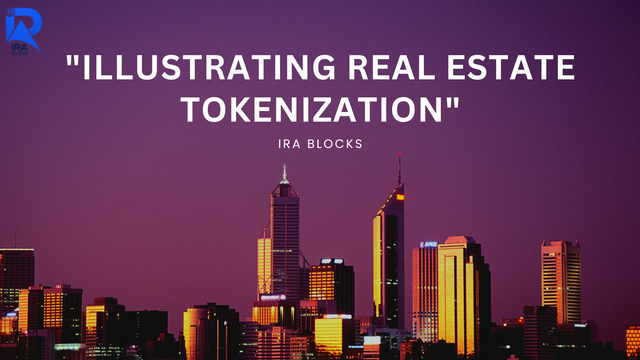
Introduction
Real estate has long been considered a stable and lucrative investment option. However, traditional real estate investments often come with barriers such as high entry costs, illiquidity, and limited accessibility. Enter real estate tokenization, a groundbreaking approach that is reshaping the investment landscape. In this blog, we will delve into the anatomy of real estate tokenization, exploring its key components and the transformative benefits it offers.
The Foundation: Blockchain Technology
At the core of real estate tokenization lies blockchain technology. This decentralized ledger system ensures transparency, security, and immutability of transactions. By leveraging blockchain, real estate assets can be divided into digital tokens, each representing a fractional ownership stake.Token Creation and Distribution
The process of tokenization involves creating and distributing digital tokens that represent ownership in a real estate asset. These tokens are typically issued through a smart contract, which automates the issuance and management of tokens. Investors can then purchase these tokens, gaining exposure to the underlying real estate asset.Enhanced Liquidity and Accessibility
Real estate tokenization unlocks liquidity by allowing fractional ownership. Investors can buy and sell tokens, enabling them to participate in real estate investments with lower entry costs. Additionally, tokenization eliminates geographical barriers, enabling investors from around the world to access previously inaccessible markets.Transparency and Security
The tokenization process is transparent and secure thanks to blockchain technology. All transactions are recorded on the blockchain, providing an immutable and auditable record. This openness lowers the possibility of fraud and increases investor confidence.Streamlined Processes and Cost Efficiency
Tokenization simplifies the traditionally complex and time-consuming processes associated with real estate investments. Smart contracts automate tasks such as property transfers, rental income distribution, and asset management. This automation reduces the need for intermediaries, streamlines processes, and lowers transaction costs.Diversification and Fractional Ownership
Real estate tokenization enables investors to diversify their portfolios by owning fractional shares in multiple properties. This fractional ownership allows for greater flexibility and risk management, as investors can allocate their capital across different assets and geographies.
Conclusion
Real estate tokenization represents a paradigm shift in the way we invest in and interact with real estate assets. By leveraging blockchain technology, this innovative approach offers enhanced liquidity, accessibility, transparency, and cost efficiency. As the real estate industry continues to embrace tokenization, investors can look forward to a more inclusive and efficient investment landscape, unlocking new opportunities and reaping the benefits of this transformative investment approach.